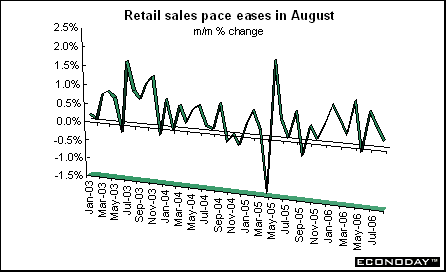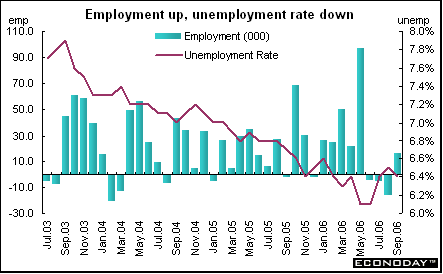The Dow climbed to an all time high during last week, above its previous high in 2000. Equities climbed in the wake of dropping crude oil prices. But while the Dow finally recouped its losses, it has a long way to go to catch up with Canada's S&P/TSX composite that has benefited from years of high flying commodity and energy prices. On the other hand, the poorest performer is the Nasdaq. It has a long way to go to equal its over-exuberant past. The graph below shows the progress that the main world indexes have made since the beginning of the new millennium.

On the week, the S&P/TSX composite was down primarily on declining commodity and energy prices that have cut into profit expectations. The Kospi also lost ground this week, but South Korean markets were closed for three of the five trading days for holidays.
Global Stock Market Recap

Europe and the UK
After stellar gains on Wednesday and Thursday, stimulated in part by the Dow's new all-time high and merger activity, the U.S. employment report put downward pressure on European and British stocks. The job increase did not meet analysts' expectations. But earlier in the week, signs that EMU interest rates might be nearing a plateau helped European investor optimism. European shares hit their highest levels in more than five years on Thursday, enthused also by sinking oil prices and hopes that the U.S. economy will avoid a recession. FTSE closed over 6000 on both Thursday and Friday for the first time since May 11.

Odds favor a November Bank of England rate increase
The Bank of England as expected kept their key interest rate at 4.75 percent for the third month. However with inflation up 2.5 percent on the year, the Bank is expected to increase rates again in November. The rationale for favoring November is that it is a month when a new inflation report is released. The report gives the Monetary Policy Committee's views on the economy. In the past, rate changes have coincided with the report's release. A contributing factor could be housing prices once again. Stronger-than-expected house price increases have confirmed suspicions that homebuyers have not been deterred by August's surprise interest rate increase. Bank of England governor Mervyn King has made it clear that he considers an over-exuberant housing market to have broader inflationary implications. The MPC does not make a statement at a meeting's conclusion unless there is a change in policy. Bank watchers will have to wait two weeks (October 18) for the minutes of the meeting.

Missing - the word 'vigilant'
To no one's surprise, the European Central Bank increased its key interest rate by 25 basis points to 3.25 percent. But the euro fell when ECB President Jean Claude Trichet refused to be provoked into using the word 'vigilant'. The word has become a markets code word for ECB intentions. Although there was no question that rates will be increased again before year end, the lack of the code word left market analysts adrift as to when it will occur.
While ECB interest rates may be nearing a plateau, it is doubtful that the ECB would follow the Fed and announce a 'pause'. Trichet said EMU inflation might come back within the ECB's target of below but close to 2 percent on the year within the next 18 to 24 months. September's flash reading of the harmonized index of consumer prices was 1.8 percent - below the 2 percent level for the first time since January 2005. An increase in the German VAT (value added tax) takes place in 2007 and will push inflation higher, but it is expected to act as a brake on growth as well which could inhibit future rate increases.
Asia/Pacific
After reaching multi-year highs, investors took a break on Friday to reassess the market. On the week, all the indexes followed here gained with the exception of the Kospi. Markets in South Korea were closed for three of the five trading days. Investors were pleased on Monday when the Tankan reading for large manufacturers was higher than expected by analysts. Stocks fell back on Tuesday and Wednesday. After an exuberant Thursday - the Nikkei was up 367 points and the Topix gained 31 - investors took profits on Friday. Even so, the Nikkei was barely down while the Topix managed to inch upward. The Nikkei is now 1.9 percent above its end of 2005 level while the Topix is still 0.9 percent below.

No action by the RBA
At his first meeting as governor of the Reserve Bank of Australia, Glenn Stevens left the Bank's policy interest rate at a 5-1/2 year high of 6 percent. Inflation soared above the RBA's inflation target range of 2 percent to 3 percent for the first time in three years. It skyrocketed 4 percent in the second quarter on the year. Now hopes are that the drop in oil prices along with slower growth could temper inflation. The RBA increased rates in both May and August of this year. The Bank does not issue a statement when policy is unchanged. The new governor will give a speech on the Australian economy on October 11th. Analysts will parse the speech carefully looking for signs of policy change.

Currencies
Clearly the foreign exchange market was at odds with stocks and bonds as the dollar rose after the U.S. employment report. Currency traders saw good news in the employment numbers while others obviously did not. Employment was up less than expected but the unemployment rate inched down. Both the euro and yen tumbled on Friday. Losses for the yen picked up steam Friday after new Japanese Economic and Fiscal Policy Minister Hiroko Ota told lawmakers that the weakness of the currency's real effective exchange rate had helped to sustain growth. Also weighing on the yen is the threat of the nuclear test by North Korea. A nuclear test is a threat to Japan - as Tokyo is only 809 miles from North Korea's capital of Pyongyang.

The euro also was down despite the ECB's interest rate increase. Currency traders were particularly upset because ECB president Trichet did not say 'vigilance'. This was interpreted by some to mean that there was no guarantee of a stream of rate increases. What he did say was that the Bank would "continue to monitor all developments" to "ensure price stability over the medium and longer term." I think that implies vigilance...
Indicator scoreboard
EMU - September manufacturing purchasing managers' index was unchanged from August at 56.6. Gains in Spain and Germany offset a decline in France. Both input and output prices were up from the previous month as were new orders. However output edged downward. A reading over 50 signifies growth and below 50, contraction.

September services purchasing managers' index declined to 56.7 from 57.4 in August. Spain's gain offset lower readings for Italy and France. Input prices dropped to 57.9 from 59.9 in the previous month. However, prices charged inched up to 53.7 from 53.6 in August.
August unemployment rate edged upward to 7.9 percent from 7.8 percent in July. The increase was due to an increase in the usually volatile German rate. Unemployment edged down in France and Austria, but remained unchanged elsewhere.

August producer prices were up 0.1 percent and 5.7 percent when compared with the same month a year ago. There was an improvement from the previous month when the PPI was up 0.7 percent and 6 percent on the year. Energy prices sank 0.4 percent and were up 12.7 percent on the year. Excluding energy, the PPI was up 0.2 percent and 3.6 percent on the year.

August retail sales were up 0.7 percent and 2.4 percent when compared with last year. Non-food sales were up 1.6 percent but sales of food, drinks and tobacco dropped 0.4 percent.

Germany - August manufacturing orders soared by 3.7 percent and were up 14.6 percent when compared with last year. Domestic orders were up 3.3 percent while foreign orders were up 4 percent. Foreign orders for investment goods rose 6.5 percent while domestic demand increased by 5.1 percent. Both foreign and domestic orders for basic goods, capital goods and consumer & durable goods were up on the month and year. Capital goods orders were the best performers - they were up 5.9 percent on the month and 19 percent on the year.

Britain - August industrial production was unchanged on the month and up 0.7 percent when compared with last year. Manufacturing output was up 0.3 percent and 1.5 percent on the year. Production increased four months in a row for the first time since 1999. Ten of 13 manufacturing industries expanded in August and there were no significant decreases. A 1.8 percent gain in electrical and optical equipment production led the increase. A decline in utilities and mining & quarrying output curbed industrial production. Oil extraction fell 7.2 percent on the month as companies carried out annual maintenance.

Asia
Japan - Third quarter Tankan survey showed confidence among large manufacturers climbing to 24 points from 21 in the second quarter. However, small manufacturers' confidence edged down to 6 from 7 in the previous quarter. The Tankan, which means short-term economic outlook, surveyed 9,863 companies between August 30 and September 29. It asked companies about their outlook for sales, profits, spending and hiring.

Australia - August merchandise trade deficit narrow to A$208 million from a revised A320 million in July. Exports were up 1.4 percent while imports climbed by 0.7 percent. Farm exports were up 2 percent with grain exports soaring by 14 percent. Non-rural exports which include minerals were also up 2 percent. Capital goods imports jumped by 6 percent while consumption goods were up 0.4 percent. Exports to China for the two months of July and August were up 22 percent from the same two months a year earlier while exports to Japan gained 13 percent.

August retail sales were up 0.3 percent and 5.6 percent when compared with the same month a year ago. Clothing sales were up 1.7 percent while hospitality gained 1.4 percent. Recreational goods were up 1.1 percent while the other category gained 2.2 percent. Food sales were up 0.6 percent while household goods were unchanged on the month.

Americas
Canada - September employment was up by 16,200, offsetting August's decline of 16,000. The unemployment rate edged down to 6.4 percent from 6.5 percent in the preceding month. Part time jobs were up by 31,400, more than offsetting the decline of 15,200 full time jobs. The participation rate was 67.1 percent, down from 67.2 percent in the previous month. Goods producing jobs increased by 17,700 with manufacturing gaining 19,300 jobs, more than offsetting minor losses elsewhere. Jobs were down by 1,500 in the service category.

Bottom line
Last week saw three central bank meetings - Reserve Bank of Australia, Bank of England and the European Central Bank. Only the ECB chose to increase their policy interest rate. The Tankan, which was released last Monday, pleased investors and will give the Bank of Japan input for their meeting scheduled on Thursday and Friday this week.
This coming week will give investors the chance to focus on international trade data as most of the major industrial countries including the U.S. release their data. And while virtually no one is anticipating a change in BoJ policy, the outcome of the meeting will get close market attention as will anything that Bank Governor Toshihiko Fukui says at his post-meeting news conference.

